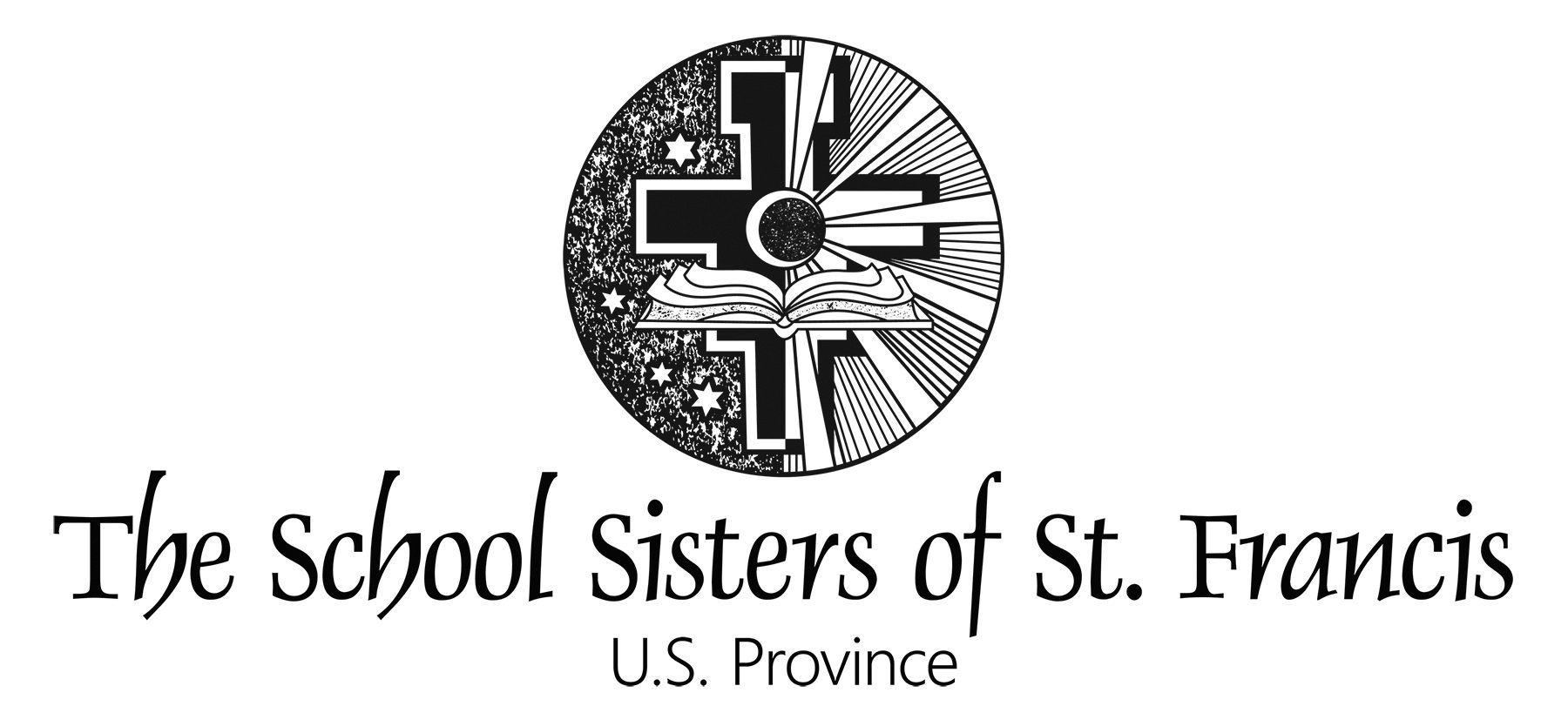Full Circle
sisters navigate turbulent times TO LEAVE SOUTH AFRICAN MISSION IN CAPABLE HANDS
American Sisters Denise Olshausky and Anece Salay — along with Sister Frantiska Olexová of the Slovak Province — outside St. John’s Care Center in Barberton, South Africa.
“It seems that our hands are still needed.”
Unrest is nothing new for the members of the School Sisters of St. Francis who minister at St. John Mission in Barberton, South Africa. In fact, it’s been more of an underlying theme of decades of important work by Sisters Anece Salay, Denise Olshausky and their colleagues to serve the people there.
The journey began in 1988. Upon arrival, the Sisters found a mission and hostel that couldn’t be seen behind the brush, bush and weeds that had grown up around it. With energy and zeal, they set about cleaning, repairing and learning what it was to care for about 100 children per year in the boarding hostel. The local people taught them the African ways of doing work.
The Sisters arrived amid political unrest, protests, strikes and stay-aways. Apartheid was finished! People of color were finally able to vote in the national election, and the Sisters taught the locals the skills to enable them to vote for their candidate. Nelson Mandela was elected by an overwhelming majority, and peace came upon the country. Since Mandela’s presidency ended in 1999, political unrest has plagued the country, as subsequent elections have seen some 17 political parties struggle to take power.
In 1998, the Sisters’ hostel work came to a close, as parents could choose schools for their children to be educated. This left the Sisters facing the philosophical question: “What do we do now?” With help from the diocese, local hospitals, social workers and local people, the need was very clear: The Sisters needed to turn their energies toward serving those with AIDS.
With no antiretroviral treatments (ARVs), those infected were waiting to die. With some remodeling, the dormitories were readied to care for those with AIDS). In 1998, St. John’s Care Center was established to care for adults with AIDS. Although nearly 750 people died at St. John’s over the decades, more than 170 lived. All received compassionate care in a well-kept and clean facility.
“It was a privilege and blessing for the Sisters to accompany them in the dying process,” says Sister Denise Olshausky, who has served at the mission for 31 years. “The rollout of ARVs changed the work of the Sisters dramatically.”
Since people were and are able to live long, productive lives with medication, the need for St. John’s Care Center eventually waned. Again, the Sisters had to change focus, and the need was clear: The children abandoned, neglected and orphaned by the AIDS pandemic needed care.
The Center became St. John’s Child and Youth Care Center, serving as a home and school to more than 150 AIDS-afflicted children over the years. Today there are still children — both HIV-positive and negative — who require care because of malnutrition, abuse, neglect and abandonment. The Sisters continued their work at the Center until December 2019 when they ‘officially’ retired and prepared the transition the mission to the care of the local people.
The Sisters originally set out in their journey at St. John’s to “begin the work, train the local people and put all into their hands.” With some training by the Sisters and, under the acting administrator of the diocese, the local people are operating the mission and caring for the children. But the last chapter in the Sisters’ South African story is yet to be told.
The Sisters had indeed ended their work at the Mission and Center, but due to travel restrictions made necessary by the COVID-19 pandemic, they remain at the mission today. COVID-19 has made it impossible for the Sisters to return to their home countries, so they continue to teach religion, conduct school activities (math and English reinforcement), and train the maintenance staff to care for the mission property.
Recent days have been marked by violent protests by local people struggling with water shortages, unemployment and general unrest due to poor living conditions. Buildings, vehicles, schools, and houses have been burned and destroyed. The children haven’t attended school for five months and probably will not attend classes for several months more. The COVID-19 infection rate is on the rise, recently doubling to 34,000 over a period of eight days.
And so the Sisters wait. They arrived in South Africa during turbulent times. Now, they prepare to leave amid the strained and difficult circumstances of COVID-19. Yet, they continue to help wherever they can and remain joined in the struggles of the South African people.
“We are ‘retired,’ but still have so much to do,” says Sister Denise. “It seems that our hands are still needed.”
Sister Anece Salay continues to teach religion to the young people at St. John’s Care Center.
Even after more than 20 years of service in South Africa, Sister Denise Olshausky still finds joy in caring for the children there.

